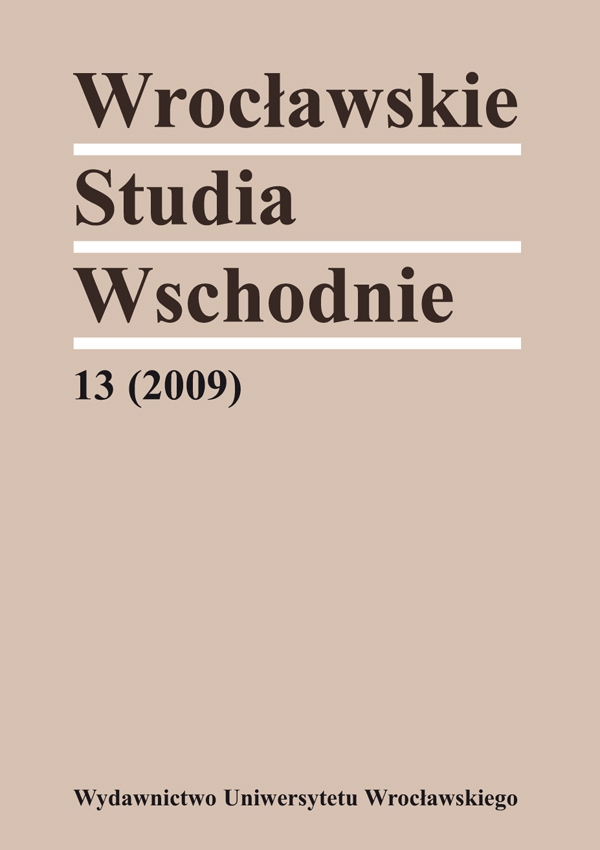

Artykuły

Отношения жителей Вершины – польской деревни в Сибири — с их бывшей родиной
Вершина была основана в начале XX века поселенцами из Малопольски и Домбровской Силезии в рамках программы заселения Сибири. Первые годы поселенцы были вынуждены жить в землянках и рубить тайгу, чтобы начать заниматься земледелием. В течение первых двух десятилетий своей истории Вершина была польским языковым и культурным анклавом, однако вследствие преобразований, которые пришли вместе с коммунизмом, коллективизацией и репрессиями, жители Вершины во все большей степени подвергались ассимиляции. У жителей польской деревни в Сибири не было много случаев для контактов со своими родственниками и друзьями, оставшимися в Польше. С течением времени поколение ервых поселенцев ушло в прошлое, в связи с чем потребность в контактах с родиной уменьшилась. Время от времени Вершину посещалu польские журналисты, публицисты и кинематографисты, для которых польское сообщество, удаленное на тысячи километров от родины, представляет собой интересный мате-риал. Перестройка предоставила национальным меньшинствам возможность вернуть их права, что позволило приехать в Вершину польским ксендзам и учителям. Жители Вершины помнят о своих корнях и стране происхождения, но сегодня почти никто там не интересуется современной Польшей с ее культурной и политической жизнью. Теперь каждый год Вершину посещают многие польские экскурсии, официальные лица, представители ветеранских организаций и путешественники. Кроме научных работ в польском Интернете и печатных источниках можем найти много текстов, посвященных польской деревне в Сибири. Большинство из них повторяет по крайней мере один и двух мифов на тему данного сообщества: об идеальном первобытном обществе, культивирующем чистый польский характер и/или общесибирский стереотип дикой и недоступной страны, в которой живут твердые люди, борющиеся с нищетой и социальными проблемами. Сопоставление мифов с действительной картиной Вершины показывает, что популярные мнения о польском сообществе в Сибири в общедоступных текстах сильно преувеличены и искажены.
The relationships between the inhabitants of Vershina — a Polish village in Siberia — and their former fatherland
Vershina has been founded at the beginning of the 20th century by Polish settlers from Lesser Poland and East-Northern Silesia, as a part of the program of settling Siberia. The newcomers had spent their first years in dugouts, they cleared taiga to begin with tillage. During the first two decades Vershina constituted Polish cultural and language enclave, but as a result of changes caused by the coming communism, repressions and collectivization, the Polish village became considerably assimilated to its surroundings. The inhabitants of Vershina had not many opportunities to contact their relatives and friends who had stayed in Poland. With time, the generation of first settlers started to die and the need of these contacts weakened. From time to time Vershina was visited by Polish journalists, publicists and film makers, for whom the Polish community several thousands kilometres from the fatherland constituted an interesting material. After perestroika the national minorities regained their former rights, which created a possibility for Polish teachers and priests to come to Vershina. The inhabitants of Vershina remember their roots and country of origin, but practically nobody is interested in contemporary Poland, its culture and politics. Nowadays, Vershina is visited every year by numerous Polish excursions, big wig delegations, representatives of combatant organizations and travellers. In addition to scientific works, in Polish internet and printed sources there are a lot of texts devoted to the Polish village in Siberia. Most of them are multiplying at least one of the two main myths: about an ideal primeval community preserving pure Polishness and the all-Siberian stereotype of a wild and inaccessible land, inhabited by tough people, struggling with poverty and social problems. The confrontation of the popular myths with reality leads to a statement of a seriously exaggerated and deformed picture of Vershina and its surroundings in available in our country non-scientific texts.